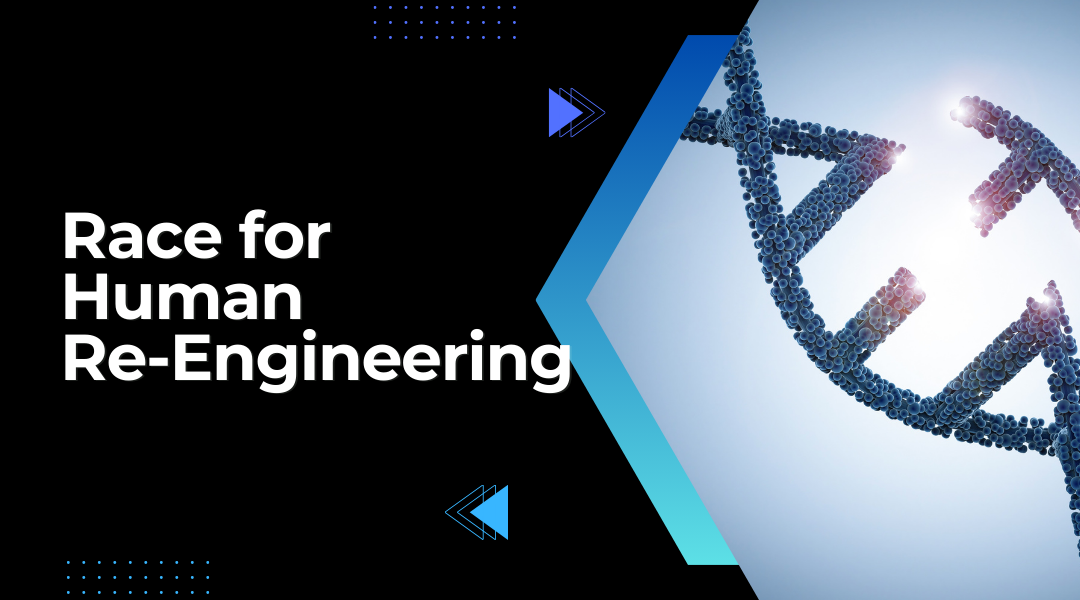You’ve probably noticed how rapid advancements in gene editing and cybernetic enhancements are reshaping what it means to be human. Every breakthrough brings intriguing possibilities but also raises complex ethical questions. As you explore the implications of these technologies, consider how they might redefine our society and individual identities. What happens when the line between human and machine blurs, and who decides what enhancements are acceptable? The answers might challenge your understanding of humanity itself.
The Rise of Gene Editing
The rise of gene editing has transformed the landscape of biotechnology, offering unprecedented opportunities to alter the very fabric of life. You’re witnessing a revolution in genetic manipulation that empowers researchers to make precise changes to DNA. With bioengineering advancements, scientists can now create organisms tailored for specific purposes, pushing the boundaries of what’s possible in medicine, agriculture, and beyond.
Imagine the potential of DNA modification, where errors in genes responsible for hereditary diseases can be corrected. This isn’t just theoretical; it’s happening now, opening the door to remarkable gene therapy opportunities that aim to treat or even cure genetic disorders.
You might think about genetic enhancement, which could lead to improved health outcomes and increased resistance to diseases, all through targeted modifications.
As you delve into this fascinating field, consider the ethical implications of these technologies. The capacity to edit genes brings not only exciting possibilities but also significant responsibilities. You must think critically about how these advancements will shape the future of humanity and the natural world, as the race for human re-engineering accelerates.
Cybernetic Enhancements and Possibilities
Imagine a world where your physical and cognitive abilities can be enhanced through technology. With advancements in neural implants, you could boost your memory and processing speed, unlocking potential you never thought possible.
Bionic limbs are already transforming lives, allowing individuals to regain mobility and experience life with newfound strength and agility.
Augmented reality could merge seamlessly with your daily experiences, overlaying digital information onto your surroundings, enhancing your interactions with the world. This technology could redefine how you learn, work, and socialize, providing instant access to knowledge at your fingertips.
As biohacking trends gain traction, you might find yourself experimenting with various enhancements to push your boundaries even further. Imagine customizing your own body with cutting-edge tech, optimizing your health and performance like never before.
Virtual reality could take these enhancements to a whole new level, immersing you in environments that challenge both your mind and body. You could train in simulated worlds, honing your skills and pushing your limits without the risks tied to the physical realm. The possibilities are endless, and the future of cybernetic enhancements might just reshape what it means to be human.
Ethical Considerations in Re-Engineering
As advancements in human re-engineering surge, ethical considerations become increasingly critical. You’ll face a myriad of moral dilemmas as you navigate the implications of altering human biology. Questions about who gets to decide what modifications are acceptable arise, leading to consent issues that can complicate personal autonomy.
Are individuals fully informed about the risks and benefits of these enhancements, or are they coerced into decisions they don’t fully understand?
Moreover, without robust regulatory frameworks, the potential for exploitation and inequality looms large. These frameworks should ensure that re-engineering practices are safe, equitable, and respect individual rights. In addition, philosophical debates about the essence of humanity are ignited—what does it mean to be human when we can modify our very nature?
Societal Impact of Human Modifications
Advancements in human re-engineering extend far beyond individual choices, shaping the very fabric of society. You mightn’t realize it, but these modifications bring about significant societal implications that affect everyone. As people modify themselves for enhanced abilities, ethical dilemmas arise, challenging our moral compass. Are we crossing a line when we alter what it means to be human?
Moreover, the pursuit of enhancements can exacerbate economic disparities. Those with financial resources may gain access to superior modifications, leaving others behind. This divide could fuel resentment and social unrest, creating a rift in communities.
Cultural shifts will also occur as society grapples with these changes. Traditional values surrounding identity and humanity will be tested, leading to debates around acceptance and integration of modified individuals. You’ll see differing opinions emerge, reflecting the diverse beliefs across cultures.
Future of Human Evolution
How will the future of human evolution unfold in a world increasingly shaped by technology and modification? You’re witnessing a pivotal moment where genetic manipulation and technological advancements redefine our evolutionary trajectory. As you explore the potential for biological enhancements, you may find yourself contemplating the extraordinary possibilities: heightened intelligence, extended lifespans, and even resistance to diseases.
However, with these advancements come significant ethical dilemmas. You might ask yourself: Who gets access to these enhancements? Will this lead to a new societal divide between the modified and unmodified? The implications of altering our genetic makeup are profound, and they extend beyond individual choices to impact humanity as a whole.
As you consider the future, you’ll realize that your decisions today shape the human experience of tomorrow. Will you embrace these innovations, or will you advocate for caution in the face of potential consequences? The path of evolution is no longer a natural process; it’s a race driven by human ingenuity. Your role in this journey is crucial, as the choices you make influence not just your own future, but the very essence of what it means to be human.
Conclusion
As we race forward in human re-engineering, it’s crucial to pause and reflect on the implications of our advancements. The power of gene editing and cybernetic enhancements offers incredible possibilities, but we must tread carefully. Ethical considerations and societal impacts can’t be overlooked. It’s up to you to engage in these conversations, advocate for responsible practices, and ensure that as we reshape humanity, we do so with a commitment to equity and respect for all individuals.
